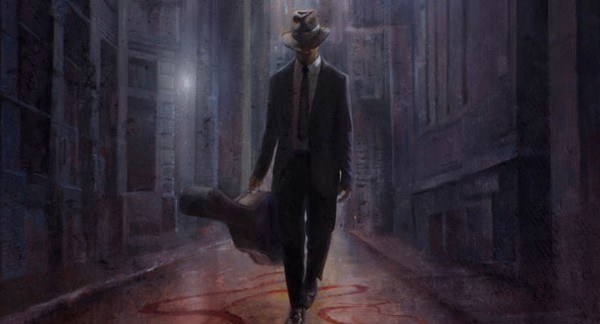
As a person who’s attempting to write thoughtful, modern weird fiction, I found The Ballad of Black Tom by Victor LaValle to be a pure delight. Go read this one, folks! It’s a fabulous novella. The narrative is very much in a dialog with (and functions as a razor-sharp rebuttal to) H.P. Lovecraft’s story “The Horror at Red Hook.” Narratively, this is a re-telling and very smart expansion of Lovecraft’s story and tells the tale of Tom Tester, who at the start of the book aspires to be an entertainer but quickly gets swept up in eldritch horrors.
[Spoilers follow; if you don’t want to know the ending of the book before you read it for yourself, continue no further. And yes, it’s rather different than Lovecraft’s story.]
Tester’s evolution from being a bit of a hustler but an essentially decent, caring young man to a sorcerer who murders an entire room full of police and sets the stage for Cthulhu’s awakening is shown to be the direct consequence of the unrelenting brutality of white supremacy. In contrast, the second viewpoint character, Detective Malone (who is the protagonist of Lovecraft’s original story) is shown to drive the plot largely through his selfish curiosity and callous disregard for the people the police bully and murder. Malone could have been Tester’s ally, could have saved the world, but he constantly retreats into his own privilege and turns a blind eye to the horrific injustices happening right in front of him.
At the climax of the book, Tester literally and figuratively removes Malone’s blindness by slashing off the detective’s eyelids with a razor blade and forcing him to behold Cthulhu sleeping in his lair. The rest of the commentary in the book is just as cutting. In the original story, the somewhat brutish private investigators that Malone is forced to work with go without names or dialog. In LaValle’s retelling, there’s just one ham-fisted P.I., and he’s named Howard, after Lovecraft himself.
For me, the greatest moment of horror in the book came not from any Lovecraftian abominations but in Howard’s casual description of his murder of Tom’s disabled, harmless father in his own home, which is chillingly familiar to anyone who’s paying attention to the police brutality that sparked the Black Lives Matter movement:
Mr. Howard pointed at the building. “Because of the orientation of the apartment, the back bedroom faces an air shaft. This left the back room in darkness. After defending myself, it was discovered that the assailant had not been brandishing a rifle.”
Malone, who’d been watching Tester steadily, offered, “It was a guitar.”
“How many times did you shoot my father?” Tester asked.
“I felt in danger for my life,” Mr. Howard said. “I emptied my revolver. Then I reloaded and did it again.” (LaValle 54-57)
The thing that most impressed me about LaValle’s novel is the dialog he engages in throughout the narrative with Lovecraft’s original story. For instance, in the scene where Tester visits Suydam, the cult leader’s speech is largely a direct quote of Lovecraft’s text:
“Your people,” Robert Suydam began. “Your people are forced to live in mazes of hybrid squalor. It’s all sound and filth and spiritual putrescence … Policemen despair of order or reform and seek rather to erect barriers protecting the outside world from the contagion,” he continued.
Tommy held the neck of the guitar tightly. “You talking about Harlem?”
The spell broke. “What?” Suydam said. “Oh damn you! Why did you interrupt?”
“I’m trying to understand what in the hell place you’re talking about. It doesn’t sound like anywhere I’ve ever lived.” (LaValle 39).
In these exchanges, LaValle pointedly highlights and exposes the pernicious racial lies embedded in the original story, fixes Lovecraft’s world building problems by giving people compelling human motivations, and deepens the story through his own retelling. It’s a masterful piece of work. This is an excellent novel for anyone who wants to see how a modern retelling of a racist story can tackle the issues head-on.
Works Cited
LaValle, Victor D. The Ballad of Black Tom. New York: Macmillan, 2016. Electronic.
Lovecraft, H.P. “The Horror at Red Hook.” DagonBytes. Dagon’s Webworks, 23 Oct. 2002. Web. 5 Mar. 2016.
Leave a Reply
You must be logged in to post a comment.